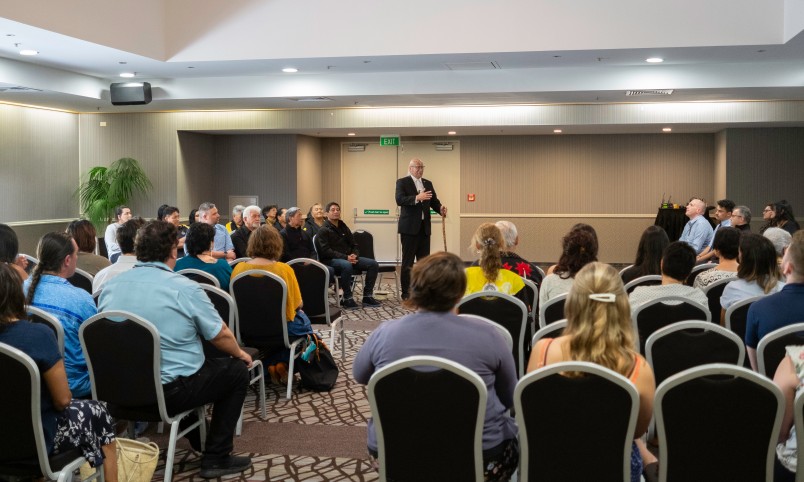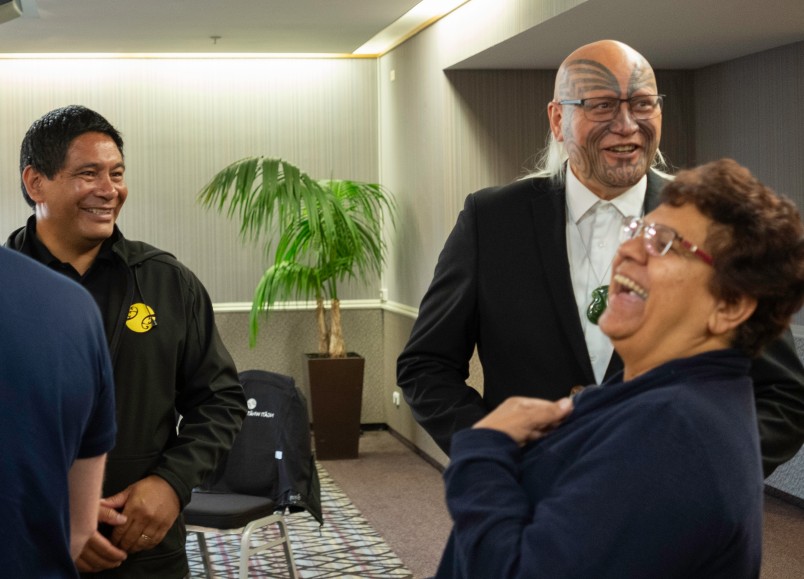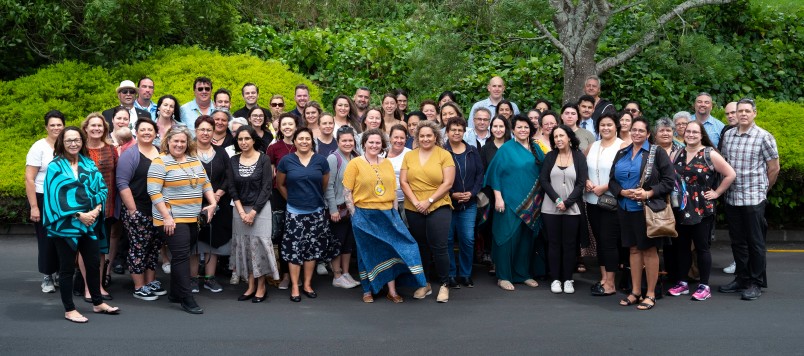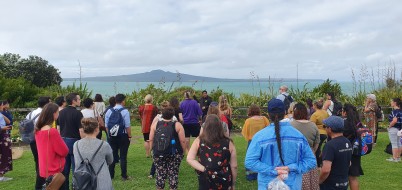This week the Health Research Council was proud to host the International Indigenous Health Research Workshop at Waipuna Lodge in Auckland with our counterparts in Australia and Canada – the National Health and Medical Research Council of Australia and the Canadian Institutes of Health Research (CIHR).
It was a unique opportunity for indigenous health researchers from New Zealand, Australia and Canada to come together to support and encourage a healthier future for indigenous peoples who have long faced inequitable health outcomes.
A total of 56 indigenous health researchers took part in the three-day workshop, including 17 from New Zealand (Māori), 11 from Australia (Aboriginal and Torres Strait Islanders), and 28 from Canada (First Nations, Inuit and Mètis peoples). The participants ranged from up-and-coming researchers working in the indigenous health research space to highly experienced indigenous health research mentors, such as Dr Heather Gifford, Senior Advisor Business & Research at Whakauae Research for Māori Health and Development; Dr Carrie Bourassa, Scientific Director of the National Institute of Indigenous People’s Health at CIHR; and Associate Professor Daniel McAullay, Director of the Centre for Improving Health Services for Aboriginal and Torres Strait Islander Children and Families at the University of Western Australia.
The workshops began with a pōwhiri led by Ngāti Whātua Ōrākei, followed by a cultural hikoi around Bastion Point (pictured, above). Workshop sessions included discussing opportunities for growing the capacity of the indigenous health research workforce and exploring ways to support collaborative efforts among groups from Australia, Canada and New Zealand in the area of international indigenous health research mentoring.
The HRC’s Senior Manager of Māori Health Research Investment, Mr Stacey Pene, and Assistant Research Investment Manager, Le-Shan Pomana-Wesley, helped organise the workshop and say that the overwhelmingly positive feedback they received bodes well for future international collaboration on health and research issues of relevance to indigenous populations.
“The trilateral agreement that we have with Australia and Canada is a fantastic opportunity for all three countries to share and grow our knowledge of indigenous health research. We are all very hopeful that we can build on the momentum from this workshop to help develop and support a cadre of emerging indigenous health researchers who will go on to become international leaders in their fields, ultimately helping to reduce health inequities,” says Mr Pene.



